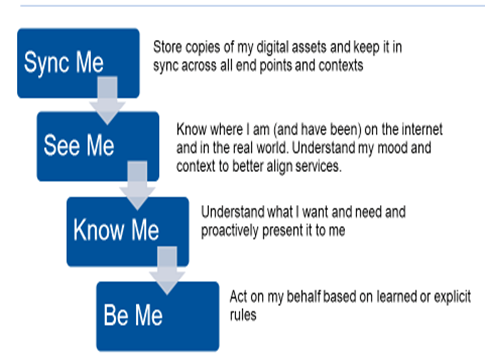Smartphones are getting smarter with each new generation, so research firm Gartner has gone out on a limb with a new forecast straight out of a dystopian sci-fi movie.
It claims smartphones will become smarter than their users by 2017.No, this will not be the result of artificial intelligence or magic for that matter. Smartphones will get smarter by tapping data gathered using cognizant computing, the next step in personal cloud evolution.
Basically smartphones will collect so much data about your habits, schedule, location and all movements (apart from bowel movements, hopefully). This data will then be shared with the NSA, but it will also be used to come up with contextual information used by your smartphone.
“Smartphones are becoming smarter, and will be smarter than you by 2017,” said Carolina Milanesi, research vice president at Gartner. “If there is heavy traffic, it will wake you up early for a meeting with your boss, or simply send an apology if it is a meeting with your colleague.”
Saying that smartphones will get smarter may not be the right description. Smartphones will get faster, the cloud will be bigger and more information will be available, allowing phones to make sense of more information and put it to good use. Of course, to make it all work, users will have to share more information with their devices and the tin foil hat gang won’t like it at all.
Cognizant computing consists of four distinct stages. First of all users will have to sync more information and make it available. These first two stages are known as Sync Me and See Me. The next two stages are Know Me and Be Me. The latter sounds a bit scary.
Gartner believes cognizant computing will become a big thing over the next two to five years. It will also see more players vying for information in the cloud and offering more services, so monetization should not be an issue.However, privacy will be a big concern for many consumers, but in many cases this is an issue only if the users don’t get much in return for their data. As Big G puts it – consumers tend to give up a lot for convenience.

Source: TechEye






